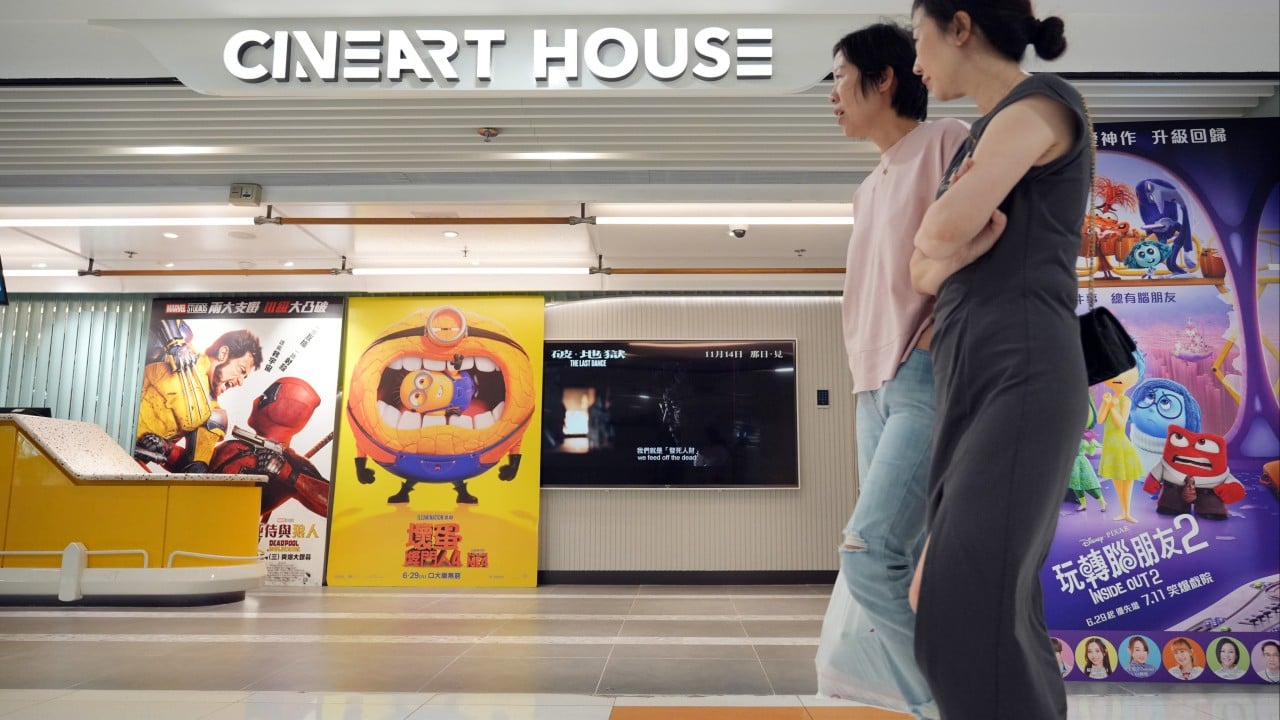The curtains will close on another Hong Kong cinema next week, joining at least five others this year, with an industry representative saying the sector is uncertain about its future amid the economic downturn.
Cine-Art House said on Tuesday that its Kowloon City outlet would only operate until Monday, when its current lease came to an end.
“We sincerely thank every member of the audience for their support and love along the way,” it said in an online post, calling on residents to support its two remaining branches in Tsing Yi and Causeway Bay.
Internet users were quick to express their sadness and gratitude, with some leaving comments such as “Thank you to all frontline staff”.
Another said: “Don’t be so discouraged, Hong Kong’s film industry is still doing well.”
The closure of the outlet in Kowloon City Plaza follows a string of others, including the six-decade old President Theatre in Causeway Bay and Golden Harvest’s GH Kai Tak in April.
The local cinema industry has struggled to recover from the effects of four years of strict anti-Covid measures during the pandemic, when residents were either told to stay at home, or theatres were allowed to operate under stripped down hours and capacities.
Cinema City Victoria in Causeway Bay and Broadway Circuit’s Diamond Hill branch in 2022, as well as the entire UA cinema chain three years ago, were among the industry shutdowns over the past few years.
Tenky Tin Kai-man, a spokesman for the Federation of Hong Kong Filmmakers, said although social-distancing measures had ended, the sector was feeling uncertain about the future.
Tin said he believed Cine-Art House’s operator was likely to be hoping to conserve resources while waiting for the economic situation to become clearer, before deciding its next move.
Tin said the cinema and film industry’s struggles were not unique to Hong Kong, but a “global phenomenon”, noting that the summer box office in mainland China, for example, had fallen more than 40 per cent compared with the same period last year.
He said the industry downturn was due to “a number of factors” including an unstable economy. But he added it was also “a matter of whether there’s a buzz”.
“Is it because the types of movies being released are not attracting people? It’s not like no one is watching movies,” he said, pointing to the recent success of action-thriller Twilight of the Warriors: Walled In.

The film was released earlier this summer and has since broken local audience records with around 1.6 million viewers, as well as becoming this year’s highest-grossing film so far at HK$115 million.
“It’s a matter of quality,” Tin said.
Secretary for Culture, Sports and Tourism Kevin Yeung Yun-hung appeared unfazed.
“I have also seen cinemas opening, so we cannot simply say that business is bad just because one cinema has closed down for its own reasons,” he said.
“In fact, the number of cinema seats has remained roughly the same over the past few years, and may even have increased slightly.”
Yeung said authorities would continue to work with the industry to promote local films, and called on Hongkongers to go to the cinema more often as it was “still different from watching movies at home”.
The local retail and catering sectors have expressed pessimism over business amid over a rising trend of residents spending weekends and holidays in Shenzhen and other neighbouring mainland Chinese cities.
Many people claim a trip across the border offers better value goods and services, with ticket prices at some cinemas as low as 20 yuan (US$2.80).
In April, the Hong Kong Theatres Association held a “Cinema Day” in which 63 outlets, including ones owned by Golden Harvest, Broadway Cinemas, Emperor Cinemas and MCL, sold tickets for HK$30 (US$3.85) each on a Sunday.
The first Cinema Day was held in 2023 as part of the “Happy Hong Kong” campaign, a government drive designed to bring back positivity after city life was blighted by the coronavirus pandemic.


